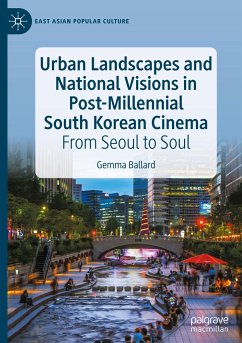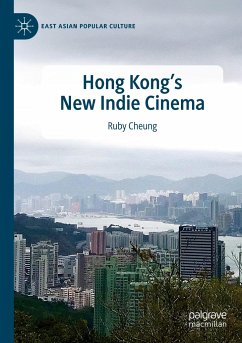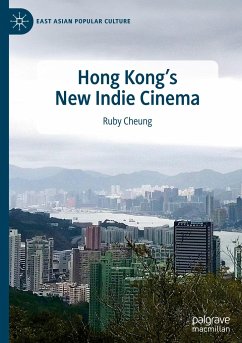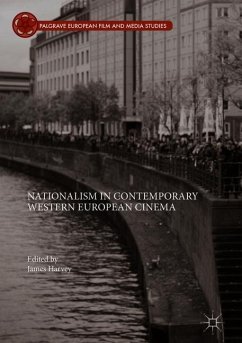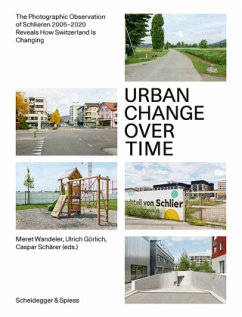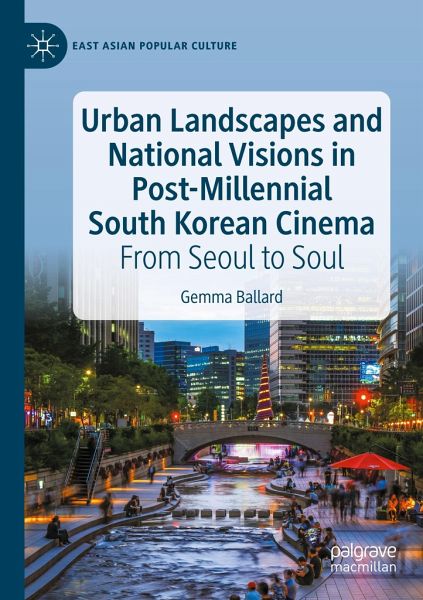
Urban Landscapes and National Visions in Post-Millennial South Korean Cinema
From Seoul to Soul
Versandkostenfrei!
Versandfertig in 6-10 Tagen
83,99 €
inkl. MwSt.
Weitere Ausgaben:

PAYBACK Punkte
42 °P sammeln!
This book explores South Korean cinema's inimitable relationship with the urban landscape and identifies the ways in which Seoul is utilised as a celluloid canvas, national artefact and, above all else, a distinctive cultural backdrop. Using five di erent approaches to urban space, from five distinctive and contrasting theoretical perspectives, Urban Landscapes in Post-Millennial South Korean Cinema investigates and seeks to understand why the cinematic representation, identity and presence of Seoul have been central to the preservation and recognition of the South Korean film industry as an i...
This book explores South Korean cinema's inimitable relationship with the urban landscape and identifies the ways in which Seoul is utilised as a celluloid canvas, national artefact and, above all else, a distinctive cultural backdrop. Using five di erent approaches to urban space, from five distinctive and contrasting theoretical perspectives, Urban Landscapes in Post-Millennial South Korean Cinema investigates and seeks to understand why the cinematic representation, identity and presence of Seoul have been central to the preservation and recognition of the South Korean film industry as an independent, autonomous and nationally unique institution.



